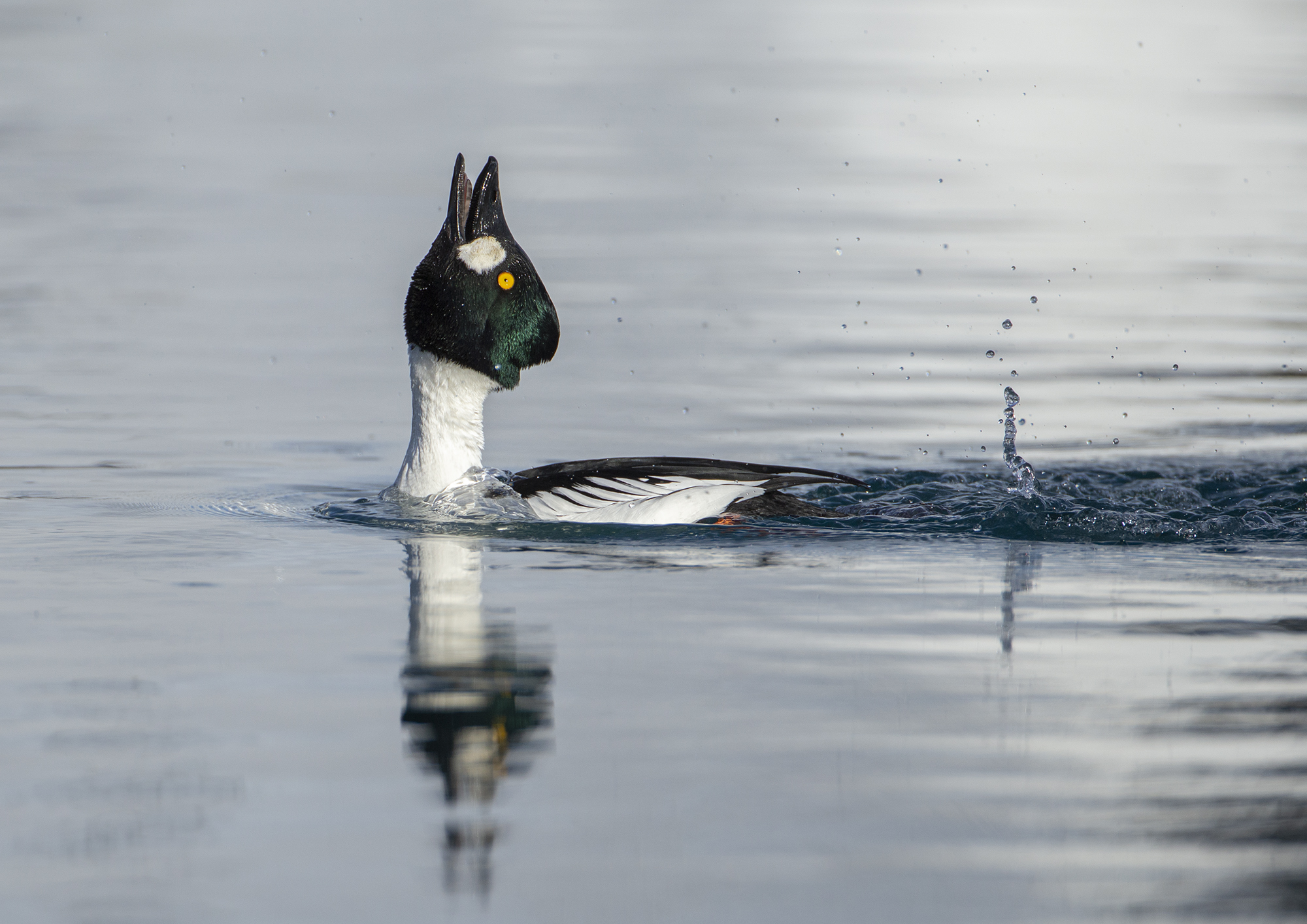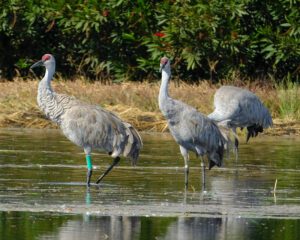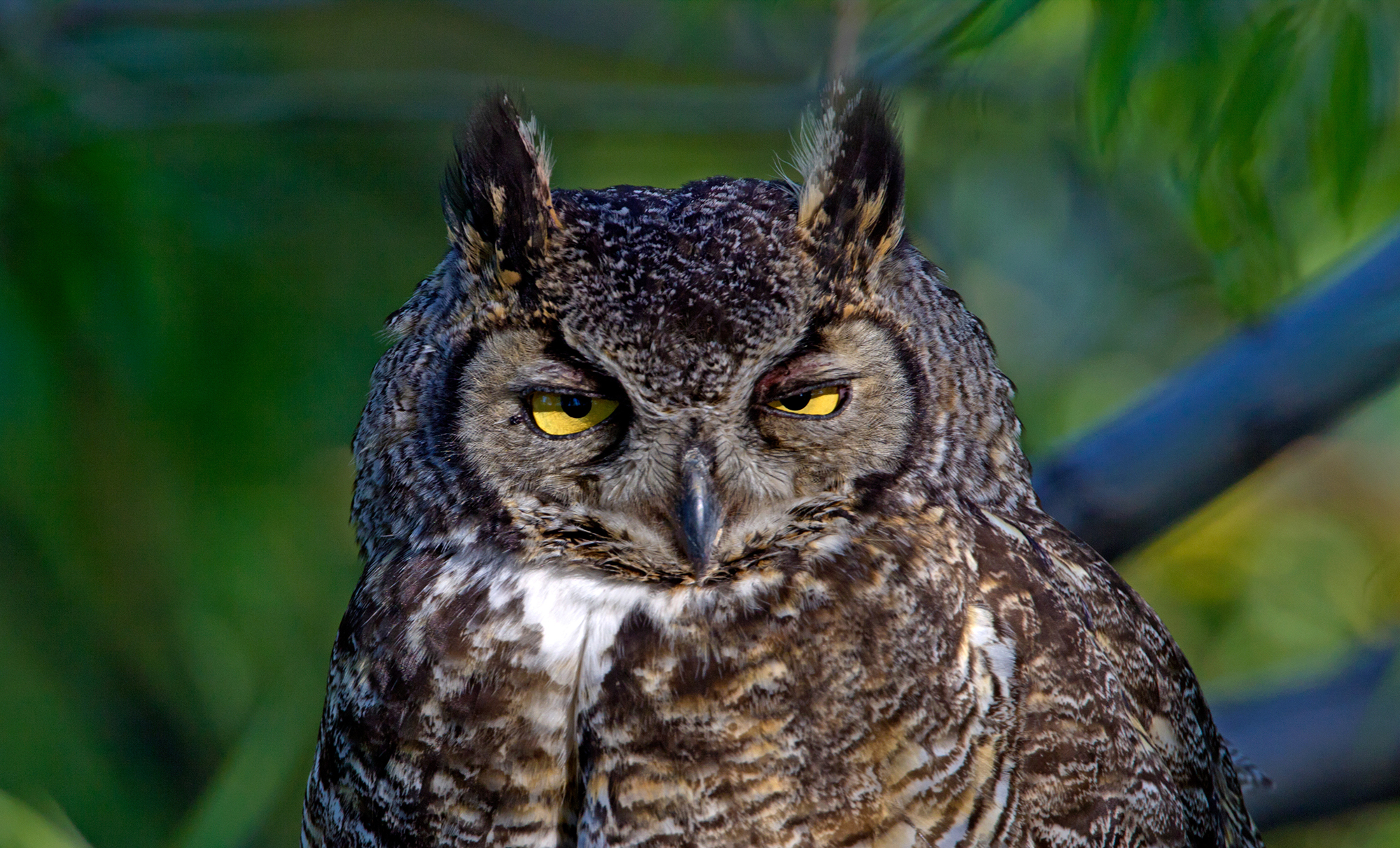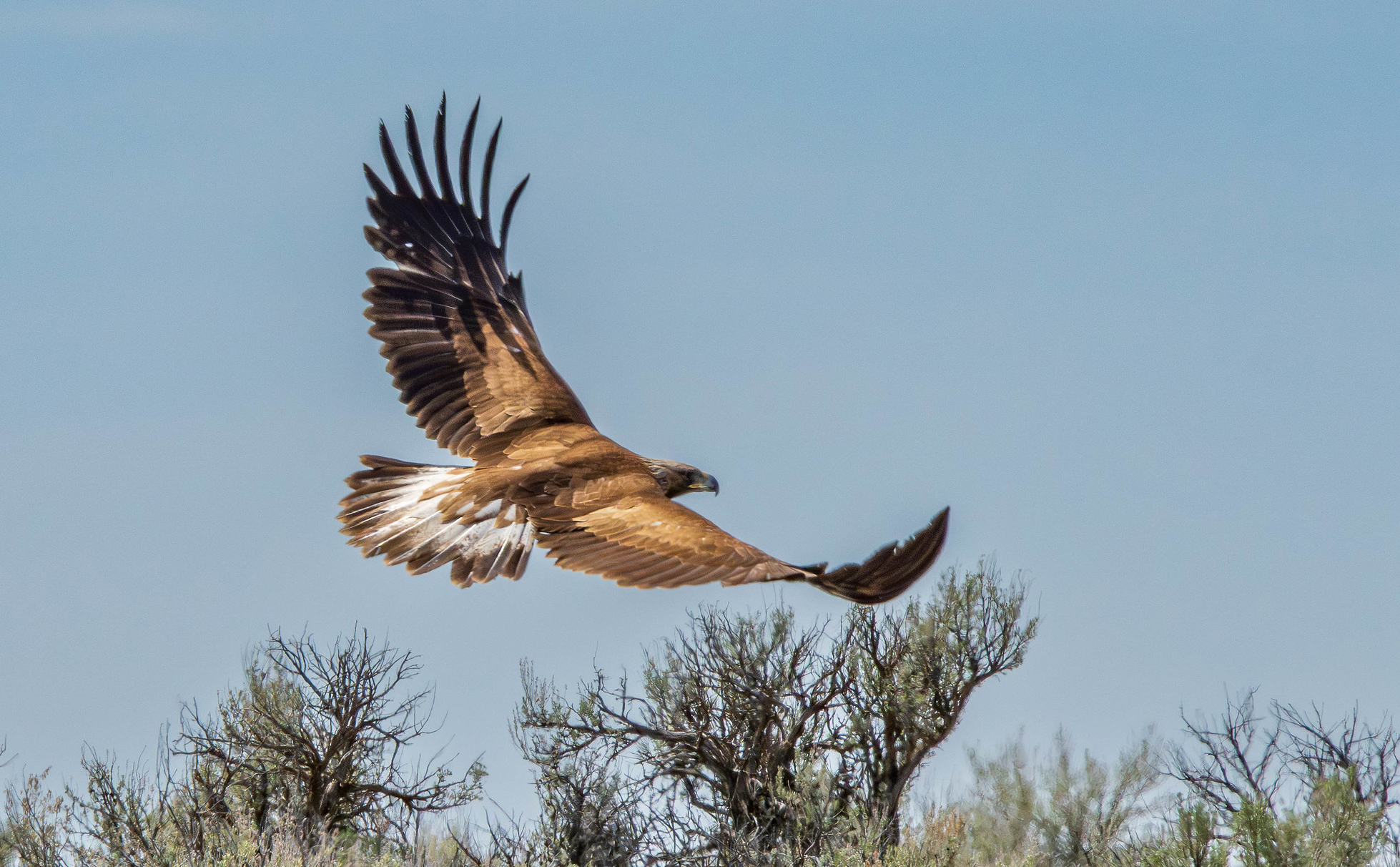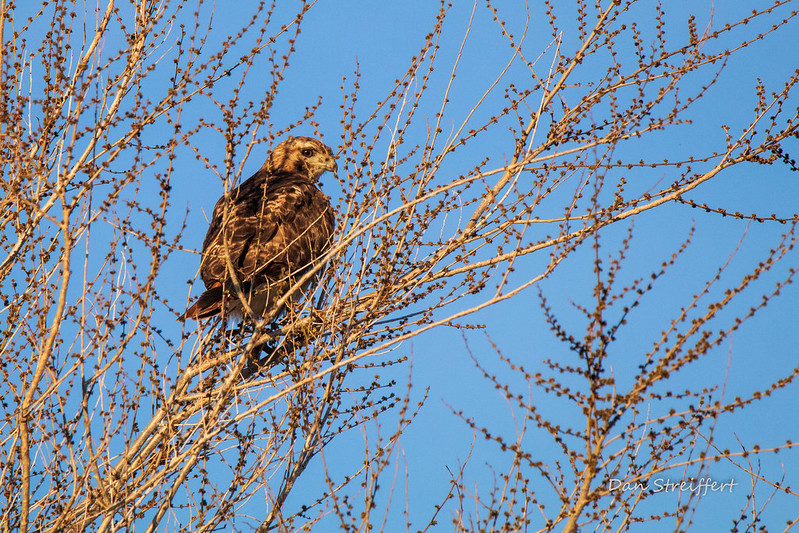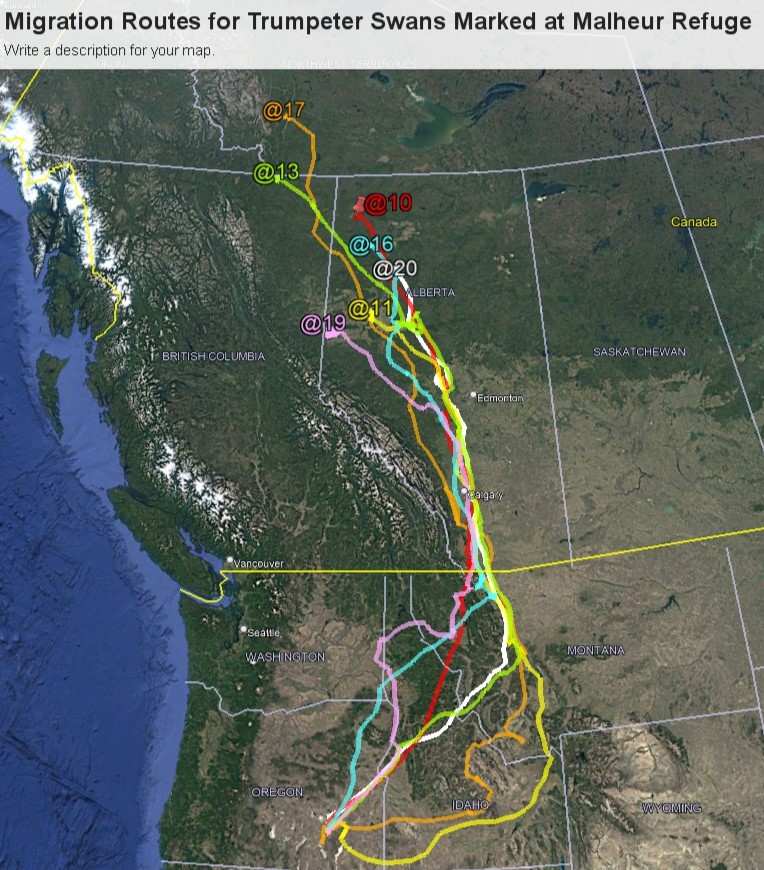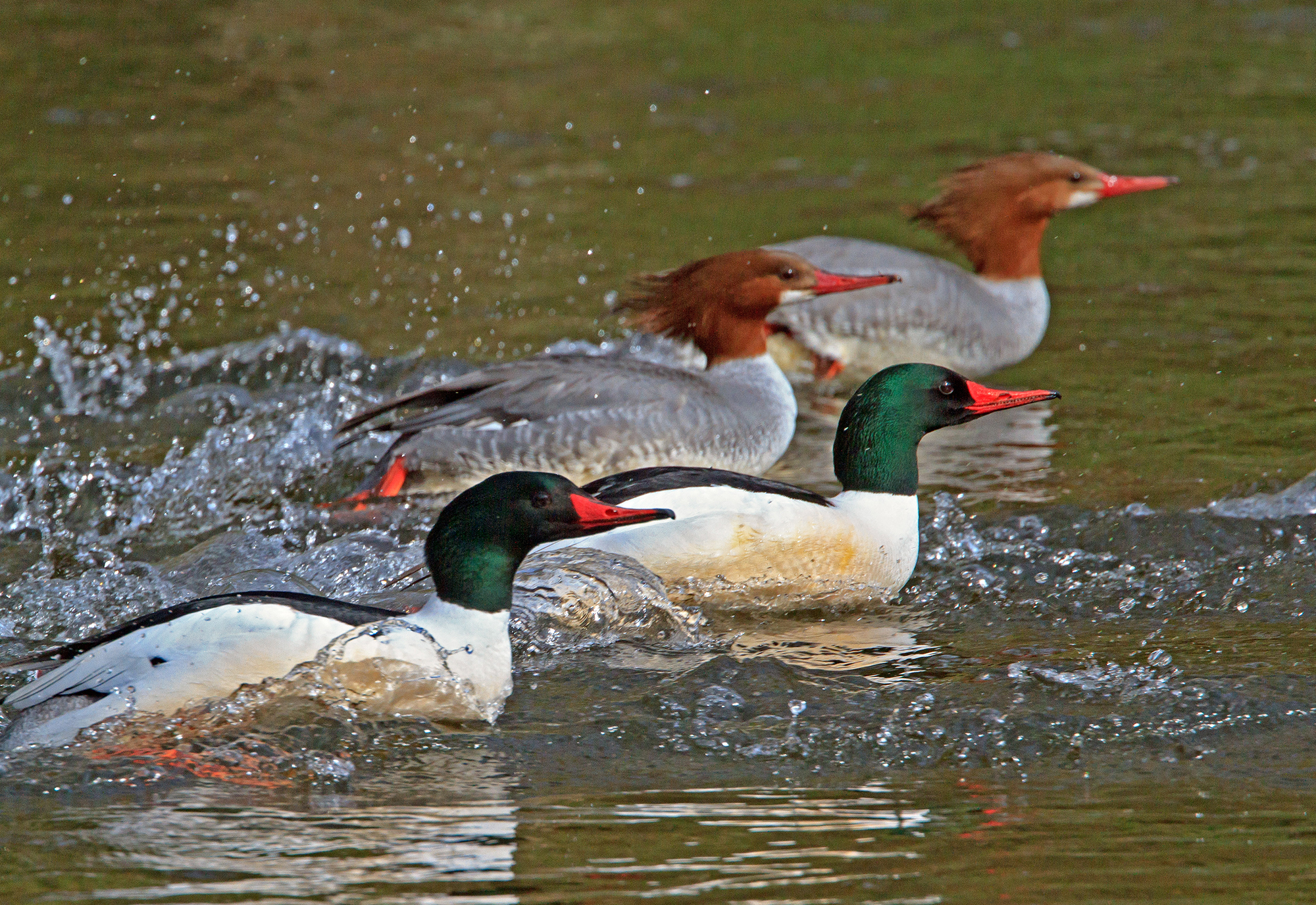Written by Peter Pearsall/Photo by Peter Pearsall
The common goldeneye (Bucephala clangula) is a medium-sized diving duck belonging to the Anatidae family. The species is named for its golden-yellow or sometimes amber eye, which is particularly striking against the dark head of the male.
The common goldeneye drake boasts a striking black and white plumage. It has a glossy greenish-black head with a distinctive circular white patch between the eye and bill. The body is predominantly white with black back and wings. Females, on the other hand, exhibit a more subdued brownish-gray plumage.
Common goldeneyes are diving ducks that primarily feed on aquatic invertebrates, small fish, and aquatic plants. They breed in northern boreal forests, often near freshwater lakes, ponds, and rivers. They nest in tree cavities, particularly those created by woodpeckers.
During the winter, these ducks migrate to more southern regions, including coastal waters, large lakes, and estuaries. At Malheur Refuge, they are commonly seen in winter, spring, and fall.
Males engage in elaborate courtship displays, including head-throwing, wing-flapping, and diving, to attract females. This behavior can be observed at the Refuge in spring, particularly at Krumbo Reservoir, where large numbers of goldeneyes and other waterfowl often congregate.

